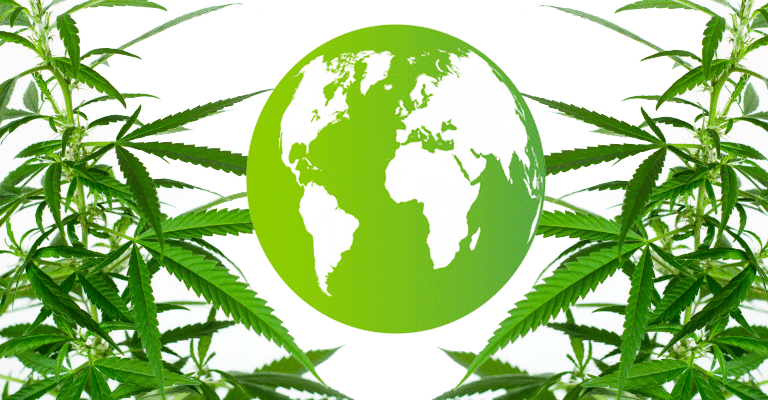
Our planet is suffering.
The awareness that it is urgent to give priority to ecological crops is growing strongly among farmers, mainly those of the new generation.
Faced with global warming, the trend now seems inexorable, like a backwater. The need to produce healthy, safe and sustainable products is also popular with consumers. Environmentally friendly crops are thus set to flourish in the decades to come. Hemp (“hemp” in English) is undeniably one of these.
Originally from Central Asia, hemp is a millenary plant; it was domesticated from the Neolithic. This ancestral culture is now coming back in force under the industrial hemp variety (Cannabis sativa) for three major reasons:
- The plant arouses the interest of industrialists and entrepreneurs all over the world as the uses of the plant can be multiple: fabrics, ropes, building and insulation materials, automotive plastics (fibers), fuels, biofuels, cosmetics, human food (hemp oil rich in omega 3 and 6 for example) and animal (seeds, hemp seed), medicines (Sativex, etc …), hemp wellness products or in other words cannabidiol CBD products etc.
- Fallen into oblivion for many decades under the influence of the pharmaceutical industry, hemp has recently aroused unprecedented enthusiasm in medical research. New drugs are gradually being approved. We then speak of cannabis or medical hemp or even cannabis or therapeutic hemp. While the therapeutic qualities of hemp, including in its natural form (CBD flowers), are today rediscovered with strength, the plant still contains many secrets: the functioning of most cannabinoids remains misunderstood today.
- Driven by an ongoing climate disaster, agronomists are finally rediscovering that the ecological cultivation of hemp is very respectful of the environment. It is this last point that interests us here and which is developed in the rest of this article.
Here’s why hemp is one of the most environmentally friendly crops in the world today:
- Thanks in particular to its deep and pivoting root system (up to 3.5 m), hemp is a crop that resists drought well, it requires very little water to grow. There is usually no need for irrigation. With drought spreading to more and more regions of the globe, this makes it a crop that gives hope to many farmers around the world, trapped by the unfavorable changes in soil, climate and biodiversity.
- The ecological cultivation of hemp does not require any input in terms of phytosanitary products: neither insecticide, nor fungicide, nor herbicide!
- Hemp returns nitrogen to the soil, unlike cotton, for example, which depletes nutrients from the soil, especially if it is not used in rotation with other crops.
- Hemp stores CO2 in its structures and thus participates in the fight against global warming. The absorption capacity of one hectare of hemp is estimated to be around 15 tonnes of CO2 per year, or as much as one hectare of forest.
- Hemp is a root system that structures the soil and uses all of the soil’s nutrients.
- Thanks to the height and density of the crop, hemp also acts as a good biodiversity reservoir for hygrophilic and ombrophilic species of insects and arthropods of rare and ecologically fragile forest types: spiders, beetles, flies and wasps predators. These species are regulators (predators) of crop pests.
If we add to these ecological virtues the fact that the growth of hemp is so fast that it smothers weeds (weeds), thus requiring almost no maintenance between the seed and the harvest, we understand very quickly why more more and more farmers are diversifying towards this culture with numerous outlets.
Beyond ecology, it should finally be noted that hemp also has agronomic interests in terms of soil yield. Hemp is what agronomists call an excellent “rotation head” (rotation). So that a plot can rest, before growing more demanding plants, hemp can be an excellent choice. For cereal producers, for example, wheat yields are undoubtedly better after a hemp crop. So, hemp? Plant production of the future, or not?
As a reminder, anyone who wants to grow industrial hemp in the UK needs a licence.
